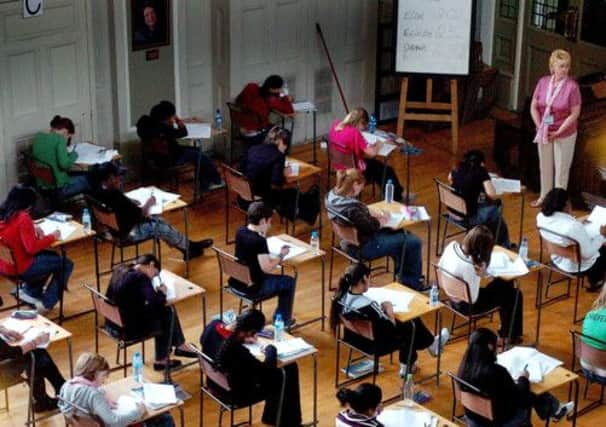University code ‘written by managers for managers’


Set up by the chairs of university courts, a steering group led by Lord Smith of Kelvin yesterday published its draft report, promising to make Scotland’s higher education system the “most accountable and transparent in the world”.
Among the recommendations are those to give students and academics more power over the appointment and appraisal of highly paid principals.
Advertisement
Hide AdAdvertisement
Hide AdBut unions for lecturers and students said the document was “vague” and little more than a consolidation of the powers already in place.
Commenting on the draft report, Lord Smith, a leading businessman who chairs the boards of the Weir Group and Scottish and Southern Energy (SSE), said: “Scotland’s university sector has long been considered a model to which other countries aspire, and this new code, when implemented, will mean that students and staff will be firmly rooted in the governance of their universities.
“We further expect that our higher education institutions will become significantly more transparent to those who study and work in them and that the governing bodies will be more representative of Scotland’s diverse communities.”
The draft report recommends staff and student input be taken into account during the appointment of a university’s principal.
It also proposes the introduction of new requirements which will secure the involvement of staff and students in the appraisal of the principal, as well as measures to make the salaries of senior staff more open to public scrutiny.
But Larry Flanagan, general secretary of the Educational Institute of Scotland (EIS), said: “The main aim of the draft code seems to reinforce the autonomy of universities and consolidate existing power structures.
“The document is a set of general principles with a few examples of good practice, with vague statements of openness, transparency and accountability. Their vagueness means it will be difficult to show universities do not meet these ‘standards’.”
The new code was first proposed in a review of university governance carried out by Professor Ferdinand von Prondzynski, principal of Robert Gordon University, on behalf of the Scottish Government last year. The steering group, which also includes former Lord Advocate Elish Angiolini, claims to have taken evidence from across the higher education sector.
Advertisement
Hide AdAdvertisement
Hide AdHowever, the University and College Union (UCU) has previously complained to the Holy-rood education committee that its members had little involvement in the drafting of the code.
Robin Parker, president of the National Union of Students (NUS), said: “We always said having university chairs making up their own code on governance would risk a weak code. It seems this risk has been realised.”
UCU Scotland president, Gordon Watson, added: “This is a code written by managers for managers, which is perhaps unsurprising considering the lack of staff and student involvement in the steering group and code development.”